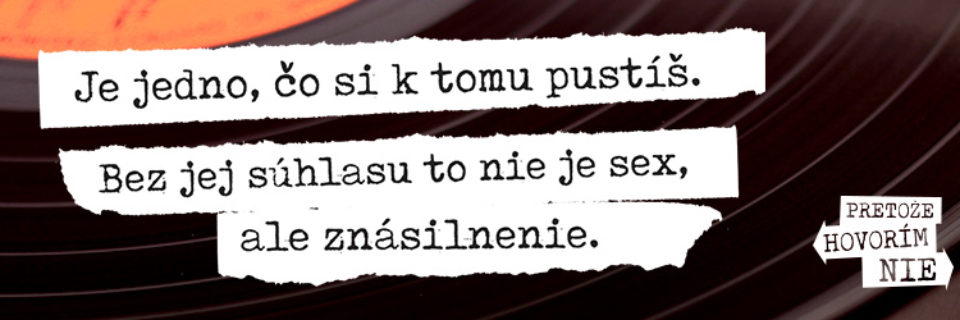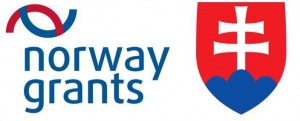Coordinating-Methodical Centre for gender-based and domestic violence
Although the topic of violence against women became a focus of public policy nearly ten years ago, no uniform practice of helping professions when solving this problem exists in the Slovak Republic. The UN and the EU have adopted several conclusions and recommendations in this field. The Council of Europe developed a system of quality standards for providing assistance to women subjected to violence, which has been based on the Council’s many years of experience in this field.
This project will create the Coordinating-Methodical Centre (CMC). The Centre will be established within the Institute for Work and Family Research. However, the Centre will fulfil its tasks across various institutions and relevant ministries.
The aim of the CMC is to create, implement and coordinate a comprehensive national policy for the prevention and elimination of gender-based and domestic violence. An expert team will be established at the CMC which will be responsible for professional coordination and supervision of systematic prevention and intervention of this violence, supporting survivors and providing services for victims of gender-based and domestic violence.
The CMC will provide professional coordination of activities through methodical guidelines in primary prevention as well as other relevant areas for the elimination of violence against women and children. The CMC will facilitate multi-institutional cooperation between assistance professionals, and provide an educational system for these professionals. Research and monitoring will also be an important role of the CMC.
The CMC will represent compliance with Article 10 of the Council of Europe’s Convention on Preventing and Combating Violence Against Women and Domestic Violence which reads as follows: “Parties shall designate or establish one or more official bodies responsible for the co-ordination, implementation, monitoring and evaluation of policies and measures to prevent and combat all forms of violence covered by this Convention.“
Experts from the non-governmental sector have been addressing issues concerning gender-based and domestic violence for a long time, using a well-developed approach. Since these experts possess great expertise and experience, they will be involved in all stages of solving and dealing with this issue in accordance with Article 11of the aforementioned convention.
Aims of the project:
- To develop and implement legislative instruments aimed at ensuring an effective system of prevention and elimination of violence against women and domestic violence, including specific legislation aimed at the elimination and prevention of violence against women and domestic violence,
- To ensure prompt and efficient assistance to all women subjected to violence or to a threat of violence, while keeping in mind the specific needs which arise from their situation,
- To prevent any form of violence, any situations that contribute to violence, and any tolerance of violence,
- To gather sufficient knowledge on violence against women in order to contribute to the expansion of effective tools in the areas of prevention and intervention.
Project Activities:
- The establishment of the CMC, including the expert team,
- Coordination of a national system of prevention and elimination of violence against women and domestic violence,
- Ensuring the analysis of the current legislation on violence against women and domestic violence and the formation and drafting of new legislative measures and strategic materials,
- Ensuring and provide the educational system for professional assistance workers, including courses at universities and lifelong learning programmes, based on the sharing of best practices from Norway,
- Developing methodical guidelines and standards for providing services in collaboration with partners from Norway and the creation of conditions and the system of the accreditation of specific services,
- Ensuring systematic education at the existing educational institutions and creating a team of lecturers for lifelong learning programmes,
- Ensuring the system of primary prevention, including the coordination of educational and training activities,
- Developing and implementing strategies to promote a zero tolerance approach to violence against women and to promote gender equality in media,
- Coordination of a nationwide media campaign on the issue of violence against women,
- Providing an analysis and evaluation of the existing system of statistical reporting, to identify gaps and weaknesses, improve and supplement the registration system for all relevant areas,
- The establishment of a database of comprehensive statistical data treatment and ensuring the regular publication of statistics on violence against women,
- Conducting various types of research concerning violence against women and domestic violence, including research aimed at women with multiple disadvantages,
- Adoption of the EU common indicators for monitoring the implementation and conduct of policies and activities aimed at the elimination of violence against women.
All the developed guidelines, standards, and analysis will be based on an update of existing information and results obtained from publicly available information and will be implemented in cooperation with the partner from Norway and the Council of Europe, while also utilising the experience of other EU countries.
Expected impact of the project:
- A high-quality system of help for survivors of gender-based violence and domestic violence will be ensured,
- The level of sensitivity of the relevant actors, the media and the public concerning gender-based and domestic violence will increase,
- The occurrence of violence against women and domestic violence will decrease in a long term.
The project recipient is the Ministry of Labour, Social Affairs and Family of the Slovak Republic
The partners of the project are:
- The Institute for Work and Family Research
- Norwegian Centre for Violence and Traumatic Stress Studies
- Council of Europe
Total amount granted: 2 000 000 EUR
The project is supported by a grant from Norway and co-financed by the State Budget of the Slovak Republic.
The project is carried out within the SK09 program: Domestic and Gender-based violence.
“A home must be a safe place for everybody”





 Adresár podporných služieb vo všetkých regiónoch Slovenska
Adresár podporných služieb vo všetkých regiónoch Slovenska Rady pre ženu zažívajúcu násilie
Rady pre ženu zažívajúcu násilie Nórsky finančný mechanizmus
Nórsky finančný mechanizmus Ministerstvo práce, sociálnych vecí a rodiny SR
Ministerstvo práce, sociálnych vecí a rodiny SR Nórske centrum pre násilie a posttraumatické stresové štúdie
Nórske centrum pre násilie a posttraumatické stresové štúdie Rada Európy
Rada Európy Stránka ORRRP MPSVR k rodovej rovnosti a rovnosti príležitostí
Stránka ORRRP MPSVR k rodovej rovnosti a rovnosti príležitostí Materiály k násiliu na ženách
Materiály k násiliu na ženách